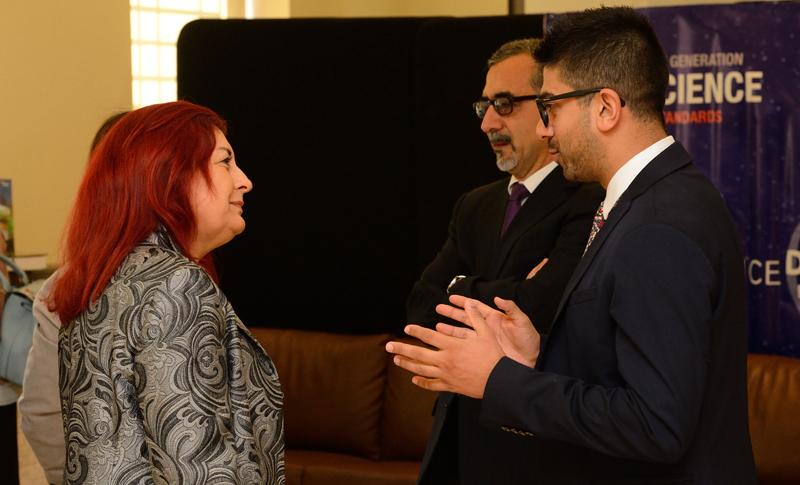STEM Education Seminar for Teachers’ Professional Development

True to its mission to spread innovative ideas and reach out to the community, the Department of Education hosted a seminar on STEM education in collaboration with All Prints Distributors and Publishers on February 23 and 24 in the Irwin Auditorium on LAU’s Beirut campus.
Science, technology, engineering and math are at the core of STEM education, a new approach in teaching. The Department of Education offers an MA in education with a minor in STEM education. “LAU can claim credit for being the first university in Lebanon, and the whole Arab world, to offer a formal degree-granting program at the level of the MA in such an important and ground-gaining field,” said Iman Osta, chairperson of the Department of Education and founder of the STEM program. “LAU can be proud to be so far, up to this moment, the only university granting such a degree.”
The seminar – an annual collaboration organized by All Prints – was led by global-solutions specialist Muhammad Jeenah, who focused on Next Generation Science Standards (NGSS) and Common Core State Standards (CCSS) for mathematics, which are the foundations of STEM education. Dozens of high school teachers and principals from across Lebanon attended.
The ultimate goal of STEM education is to encourage students to take an interest in science, technology, engineering and math at an early age. The seminar explored the main concepts and learning theories used to build integrated STEM education in the classroom.
Jeenah explained that the overarching idea of NGSS is to make learning student-focused instead of merely providing information. He said that while not all students will become scientists, “all global citizens will need to become science-literate,” because science is advancing at an extremely fast rate.
He advised teachers against giving importance to the right answer, and “to instead praise their students for their thinking and perseverance.”
Jeenah engaged attendees in a number of exercises to demonstrate the new approach to teaching science based on NGSS.
Amira Saoud, math coordinator at Maqassid-Aicha School in Sidon, was glad to have learned “ways to be more authentic and refrain from isolating activities in the classroom. They are all interconnected.”
Early Childhood Center/Lab School Teacher Walaa Qawwas remarked that, “The exercises are essential in showing us how we can elaborate on our activities and lessons in the classroom.”
By now the first cohort of 10 MA students with an emphasis in STEM education have completed their courses and have started working on their research for their thesis or final project, Osta said. She added that LAU graduates with an MA in education and a minor in STEM education have a competitive edge in the labor market because of increasing demand. “They will have better chances than others because their professional preparation and educational background relate to the most up-to-date perspectives and theories, as well as to practical, hands-on applications.”
“We are looking forward to more of these seminars and how we can better reach teachers,” said All Prints Division Director Nadima Blell, adding that the talks are underway for another STEM seminar with a focus on math and reading.